24 December 2024
If you think puzzle games are just about solving mind-boggling challenges or cracking codes, think again. Over the years, puzzle games have evolved from simple brain teasers to immersive experiences, and one of the most significant drivers of this transformation is storytelling. Yup, you heard it right—stories aren’t just for RPGs or sprawling open-world adventures anymore; they’ve found their way into the world of puzzles and are doing wonders for the genre. So, let’s roll up our sleeves and dive into why storytelling is becoming an essential piece of the puzzle (pun intended) in modern gaming.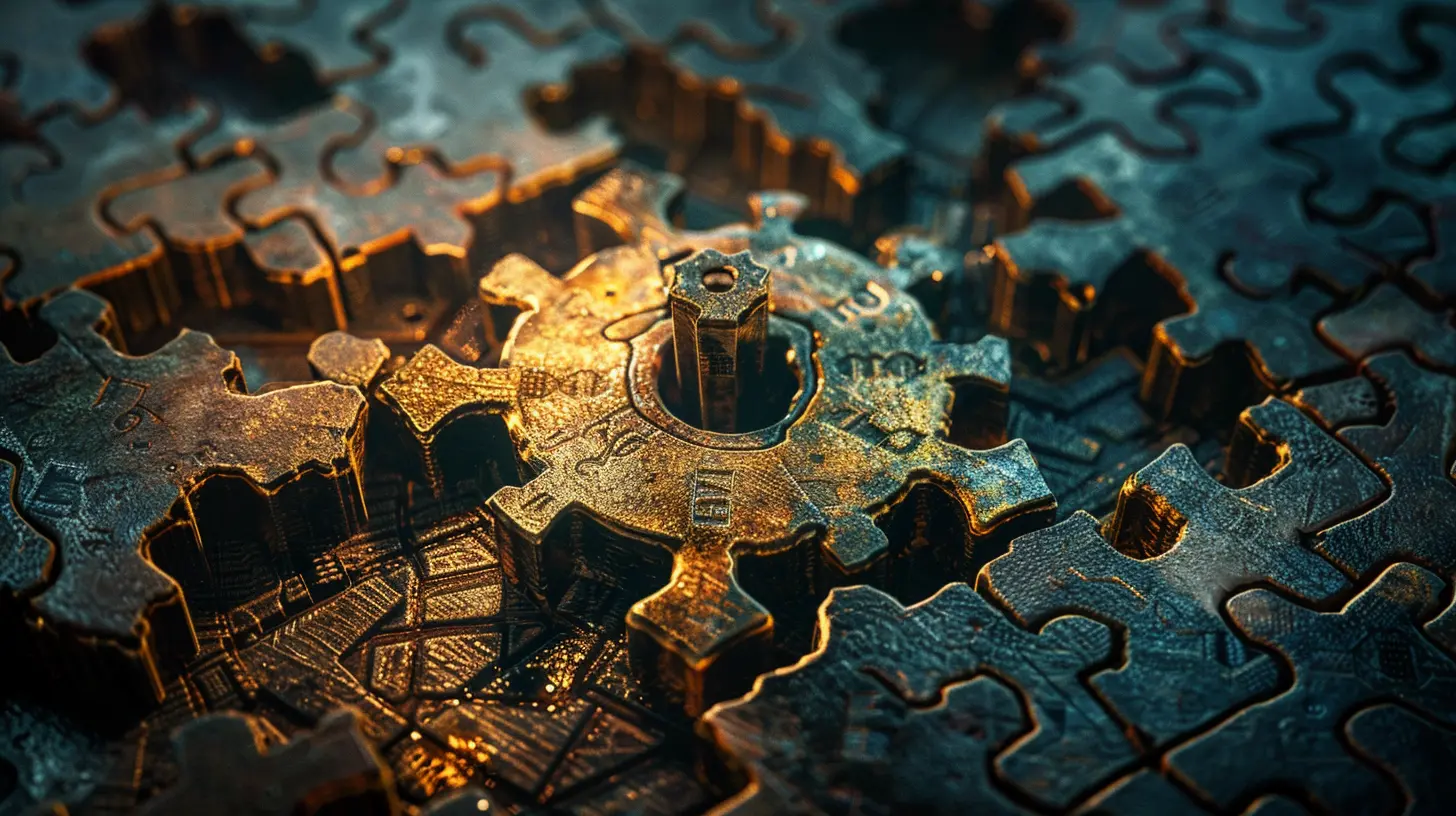
Why Puzzle Games Aren’t Just About “The Puzzle” Anymore
Think back to the early days of puzzle games—titles like Tetris and Minesweeper. They were pure, unfiltered brain workouts. No fluff, no backstory, just you vs. the mechanics. And hey, we love a good game of Tetris, but let’s be honest—it’s hard to emotionally connect with falling blocks.Fast forward to today, and puzzle games have leveled up. Titles like The Witness, Portal, and Baba Is You don’t just stop at challenging your mind—they aim to engage your heart and imagination too. Why? Because storytelling adds depth. It transforms a great puzzle game into a memorable experience. It’s the difference between solving a Sudoku and piecing together a compelling murder mystery—one’s a pastime; the other’s an adventure.
How Storytelling Enhances Puzzle Games
Alright, so we know storytelling makes puzzle games better, but let’s unpack how it actually works. Why do stories matter so much in a genre traditionally dominated by gameplay mechanics? Here are a few reasons:1. Immersion: Turning Gamers into Participants
A good story pulls you in. Instead of just solving puzzles for the sake of solving them (which, let’s be honest, can feel pretty repetitive), you’re solving them for a reason. Whether you’re trying to escape a mysterious island (The Witness) or navigating through an eerie, futuristic facility (Portal), the narrative adds stakes. Suddenly, every riddle you unravel feels like a step forward in a larger journey.Imagine playing a game where you’re just matching symbols for points versus one where every match gets you closer to unlocking a secret treasure or defeating a corrupt AI. Which one sounds more enticing? Exactly.
2. Emotional Connection: Making the Game More Relatable
Stories make puzzles personal. They give context to your actions and make you care about the outcome. A great example is Florence, a short yet powerful indie game where the puzzles are integrated into the story of a young woman’s life and relationships. The simplicity of the puzzles is elevated by the emotional weight of the narrative. You’re not just solving for the sake of it—you’re living her journey, which makes every small victory feel meaningful.Let’s face it, humans are wired for storytelling. Whether it’s books, movies, or games, we crave narratives because they mirror real life. Adding that emotional layer to a puzzle game makes it more impactful and memorable.
3. Rewarding Progress: Turning Challenges into Achievements
Ever felt stuck on a tricky puzzle and wanted to rage-quit? We’ve all been there. But when there’s a story attached, the payoff feels worth it. Unlocking a new piece of the narrative as a reward for solving a puzzle creates a dopamine hit that keeps you going. It’s like reading a page-turner—you can’t wait to see what happens next.Take Myst, for example. You’re not just wandering around aimlessly clicking on random things; you’re uncovering a mysterious world and its secrets. Every puzzle solved feels like discovering a lost chapter in a gripping novel.
4. World-Building: Creating a Sense of Place
Storytelling gives puzzle games a sense of place—literally. You’re no longer solving abstract riddles in a vacuum. Instead, you could be deciphering clues in an abandoned mansion, hacking through a high-tech cyberspace, or exploring an ancient civilization. The narrative builds the environment around you and makes the puzzles feel like they belong there.For instance, The Talos Principle uses its story to explore themes of philosophy, consciousness, and humanity. The puzzles aren’t just tests of logic; they’re part of a broader existential inquiry. The game’s world feels alive, and you, as the player, feel like a significant part of it.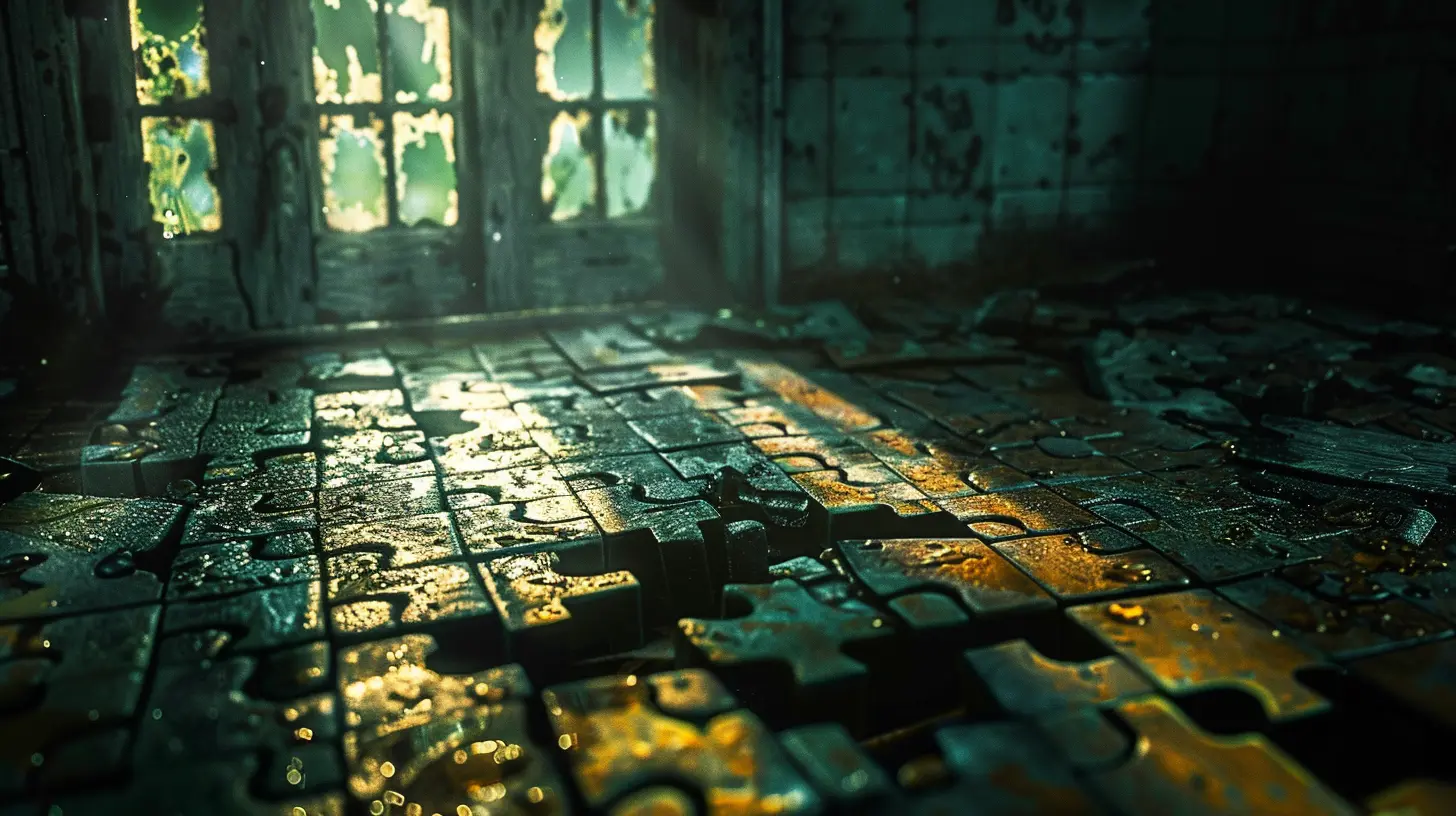
The Trend Toward Blurring Genres
If you’ve noticed, puzzle games today don’t always stay in their lane. Instead, they merge with other genres like adventure, mystery, or even horror to create hybrid experiences. And you guessed it—storytelling is the glue holding these mashups together.Take Return of the Obra Dinn, for example. Technically, it’s a puzzle game, but it’s also a detective story and a period piece. The narrative drives the gameplay, and the puzzles serve as tools for unraveling the plot. Without its story, the game would feel like a series of logic exercises. With it, though? It’s an unforgettable sleuthing adventure.
Challenges of Incorporating Storytelling in Puzzle Games
Okay, so storytelling clearly adds value, but it’s not always smooth sailing. There are challenges developers face when weaving narratives into puzzle games:1. Balancing Story and Gameplay
Too much story can overshadow the puzzles, making the game feel more like an interactive movie. On the flip side, focusing too much on puzzles can make the narrative feel like an afterthought. Striking the right balance is tricky but essential.2. Pacing Issues
Puzzles can be mentally taxing, and interrupting the flow of the story to solve a particularly tough challenge might frustrate players. Developers must be careful not to let the gameplay mechanics disrupt the narrative pacing.3. Accessibility
Creating a compelling story in a puzzle game often involves layers of complexity, but not all players may be willing to dive deep. Casual gamers might prefer quick and simple gameplay over deeply intertwined storytelling.Notable Puzzle Games That Nail Storytelling
Let’s shine a spotlight on some modern puzzle games that hit it out of the park when it comes to blending narrative and gameplay:1. Portal Series
The sarcastic humor of GLaDOS, the desolate yet fascinating Aperture Science labs, and the gradual unveiling of the facility’s dark secrets make Portal an absolute masterpiece. The puzzles are top-notch, but the story is what makes the game iconic.2. The Witness
Jonathan Blow’s masterpiece is a mind-bending puzzle game with a subtle yet impactful narrative. The story isn’t spoon-fed to you; instead, it’s uncovered piece by piece as you explore the island. It’s a great example of environmental storytelling.3. Inside
While it leans more toward platforming, Inside incorporates puzzles seamlessly into its dark and atmospheric story. The lack of dialogue makes the narrative even more compelling, leaving players to interpret the unsettling world on their own.4. Return of the Obra Dinn
This game is storytelling gold. As an insurance investigator unraveling the fate of the ship’s crew, you piece together the narrative through clever deduction. The puzzles and the story are two sides of the same coin, working in perfect harmony.The Future of Storytelling in Puzzle Games
So, where do we go from here? With advancements in technology, the line between storytelling and gameplay will likely blur even further. We’re already seeing AI being used to create dynamic narratives that adapt to player choices. Imagine a puzzle game where the story changes based on how you tackle the challenges—sounds mind-blowing, right?And with VR and AR tech evolving, immersive storytelling in puzzle games could reach a whole new level. Picture solving puzzles in a fully interactive, 3D world where the story unfolds around you in real-time. The possibilities are endless.
Wrapping It Up
So, there you have it—the role of storytelling in modern puzzle games isn’t just an added bonus; it’s a game-changer (pun intended, again). Stories breathe life into puzzles, making them more than just brain workouts. They immerse us, connect us emotionally, and turn a series of challenges into a meaningful journey.Next time you play a puzzle game, take a moment to appreciate the narrative threads woven into it. Who knows? That seemingly simple riddle could be part of a story worth remembering.

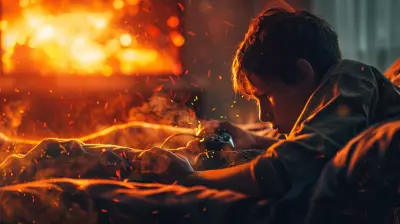
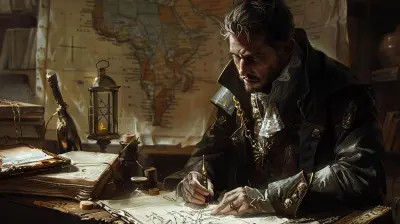

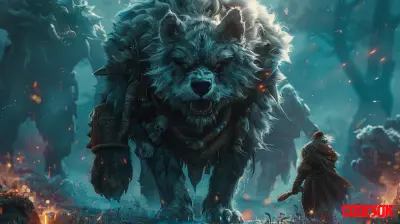


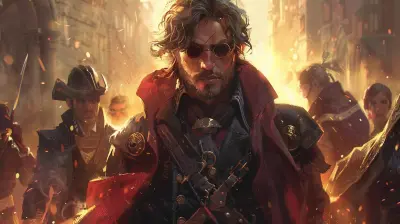
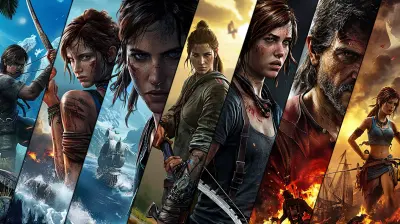
Faelan Baxter
Storytelling in puzzle games transcends mere mechanics, weaving emotional depth and narrative arcs into gameplay, ultimately transforming challenges into meaningful journeys of discovery.
February 1, 2025 at 4:11 AM